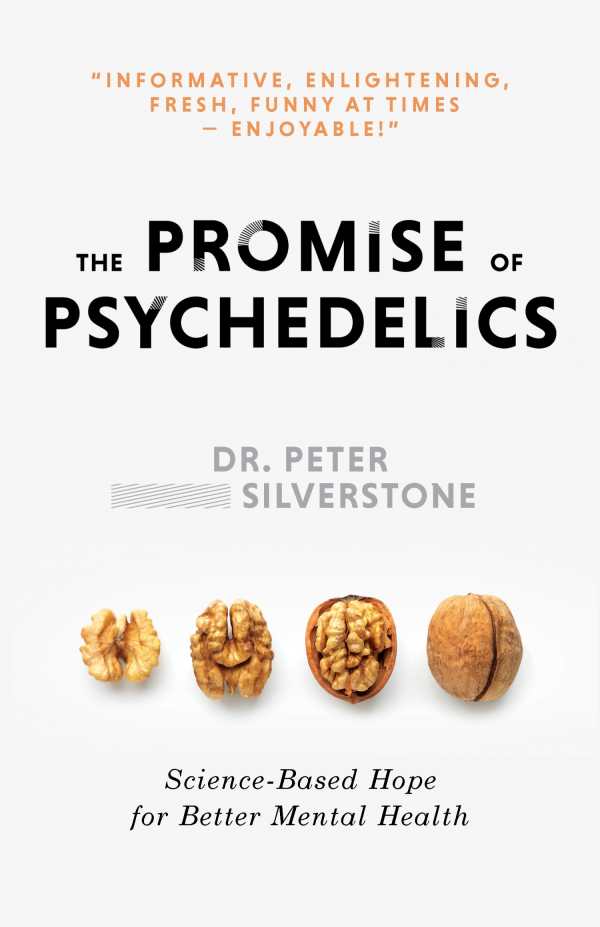The Promise of Psychedelics
Science-Based Hope for Better Mental Health
The Promise of Psychedelics is an engaging, concise introduction to the potential benefits of psychedelic-assisted psychotherapy.
In his science book The Promise of Psychedelics, physician Peter Silverstone explains how different drugs and therapies affect the mind, and shows why psychedelics have such untapped potential as a treatment option.
After treating psychiatric patients for forty years, Silverstone has come to two conclusions. One: the current treatment and diagnostic methods are insufficient for far too many people. And two: the right combination of psychedelics and therapy could revolutionize psychiatry as people know it. His book explains how such a treatment plan—called psychedelic-assisted psychotherapy—can be (and has been) used to effectively treat a variety of conditions, including post-traumatic stress disorder and addiction disorders.
The book is divided into four parts that lay out the current state of psychiatry, how the brain functions, how psychedelics impact the brain, and how various therapeutic techniques work, both by themselves and in conjunction with other treatments. Each section builds on those before it, resulting in a clear, logical explanation of what the proposed treatment plan entails, and showing how and why it has the potential to change lives. This makes the text accessible to those with little to no knowledge of psychiatry or neuroscience. Further, Silverstone utilizes plain language and analogies, as of pizza toppings and dog breeds, to illustrate more difficult concepts well.
The book also addresses common preconceived notions regarding psychedelics and psychotherapy, such as the differences between various drugs, or about the effects that patients feel from therapist-administered microdoses of the most promising psychedelics versus larger, recreational doses. An extensive bibliography lists scientific studies that support its conclusions.
Though he is optimistic about his treatment program, Silverstone also stresses the need for reasonable expectations. Psychedelic-assisted psychotherapy is not a miracle cure, he insists: it requires both professional monitoring and a month-long commitment to have any chance of success. There is also brief discussion of accessibility issues and the need to make psychedelic-assisted psychotherapy available to everyone who needs it, regardless of their location or income level.
Silverstone notes that research into the therapeutic uses of psychedelics is still ongoing, and reasons that several drugs will likely never be safe for psychiatric use. However, his confidence regarding the usefulness of three particular drugs—which he calls the “champions”—is contagious. He expresses great enthusiasm for his subject matter and its potential to help those who are currently beyond the reach of conventional therapeutic techniques. This makes the book a positive, hopeful, and at times humorous introduction to cutting-edge therapies.
The Promise of Psychedelics is an engaging, concise introduction to the potential benefits of psychedelic-assisted psychotherapy.
Reviewed by
Eileen Gonzalez
Disclosure: This article is not an endorsement, but a review. The publisher of this book provided free copies of the book and paid a small fee to have their book reviewed by a professional reviewer. Foreword Reviews and Clarion Reviews make no guarantee that the publisher will receive a positive review. Foreword Magazine, Inc. is disclosing this in accordance with the Federal Trade Commission’s 16 CFR, Part 255.

